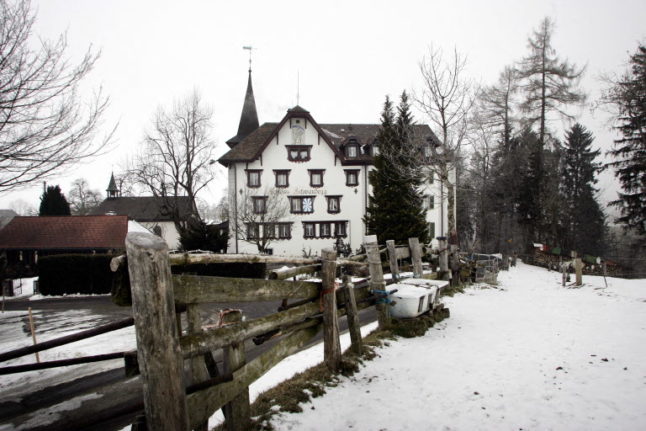The society “cannot escape accusations of control, sexual violence and cultism”, the newspaper wrote, with one victim support group reporting around 60 “problematic priests”.
The Society of Saint Pius X is a group of fundamentalist Catholics that strongly opposes the liberal reforms of the Catholic Church imposed by the Vatican II Council in the 1960s.
The society says it is present in more than 60 countries across six continents, with 590 priests and nearly half a million faithful.
Le Temps devoted the first six pages of its Saturday edition to its investigation.
It said its reporters had been given more than 20 internal documents, including letters signed by top officials and extracts from internal investigations.
“Our analysis shows that the violence took place in all four corners of Europe and the world, from the foundation — or thereabouts — of the fraternity and until 2020,” it said.
The violence was “sexual, but also psychological and physical”.
The brotherhood was founded by the controversial French bishop Marcel Lefebvre in 1970. Its headquarters are in Switzerland outside Menzingen, a village in the Zug region south of Zurich.
Le Temps said the society has 160 priories and 120 schools located on five continents.
It spoke to parents, abused former pupils and victim support groups in France, Belgium and Switzerland and recounted court cases where perpetrators were sentenced.
“In acting as it has over the past decades, the fraternity has certainly sought to protect potential new victims by incapacitating its priests. But it also did it to protect itself, according to the vast majority of our witnesses,” the newspaper said.
Le Temps said the society refused to answer its questions, as it does with all media queries on the subject of clerical abuse.
‘Pleasure in causing harm’
Francois de Riedmatten, 41, from Sion in southwest Switzerland, grew up in the society, having been sent to its La Peraudiere boarding school in France.
He told the paper of abuse by a lay supervisor, who he could see “took pleasure in causing harm”.
He recounted sexual assaults after showering and added: “He would beat the hell out of me and give me kisses straight afterwards.”
With the statute of limitations ruling out any possible legal recourse, de Riedmatten drove to La Peraudiere in 2015 to confront his “sadistic” supervisor.
“I calmly told him that his life must have been horrible to have caused so much harm. I felt that the shame had changed sides,” he said.
Contacted by Le Temps, the school’s current director said he was “stunned and revolted” by the testimony and indicated that the alleged abuser was no longer on the staff.
In an e-mail, in which the society said it would not respond to Le Temps’s queries, the organisation said that “in these particularly painful cases, the primary concern of the brotherhood is for the victims.
“It offers them assistance by supporting them, encouraging them to file complaints with the judicial authorities, guiding them through legal procedures, and supporting them in their rebuilding, as far as possible.”
School investigation
In an e-mail, in which the society said it would not respond to Le Temps’ queries, the society said that “in these particularly painful cases, the primary concern of the brotherhood is for the victims.
“It offers them assistance by supporting them, encouraging them to file complaints with the judicial authorities, guiding them through legal procedures, and supporting them in their rebuilding, as far as possible.”
Following the story, the Valais cantonal authorities are set to investigate the Fleurs de Mai school.
“The goal is to examine the situation today to see if unspeakable practices are still taking place,” Valais councillor Christophe Darbellay told the national broadcaster RTS.
The education department chief is to visit the school on Monday, accompanied by two inspectors.
“We will first demand good practices in terms of education and teaching… but it is difficult to prejudge what we are going to do,” Darbellay said.



 Please whitelist us to continue reading.
Please whitelist us to continue reading.
Member comments